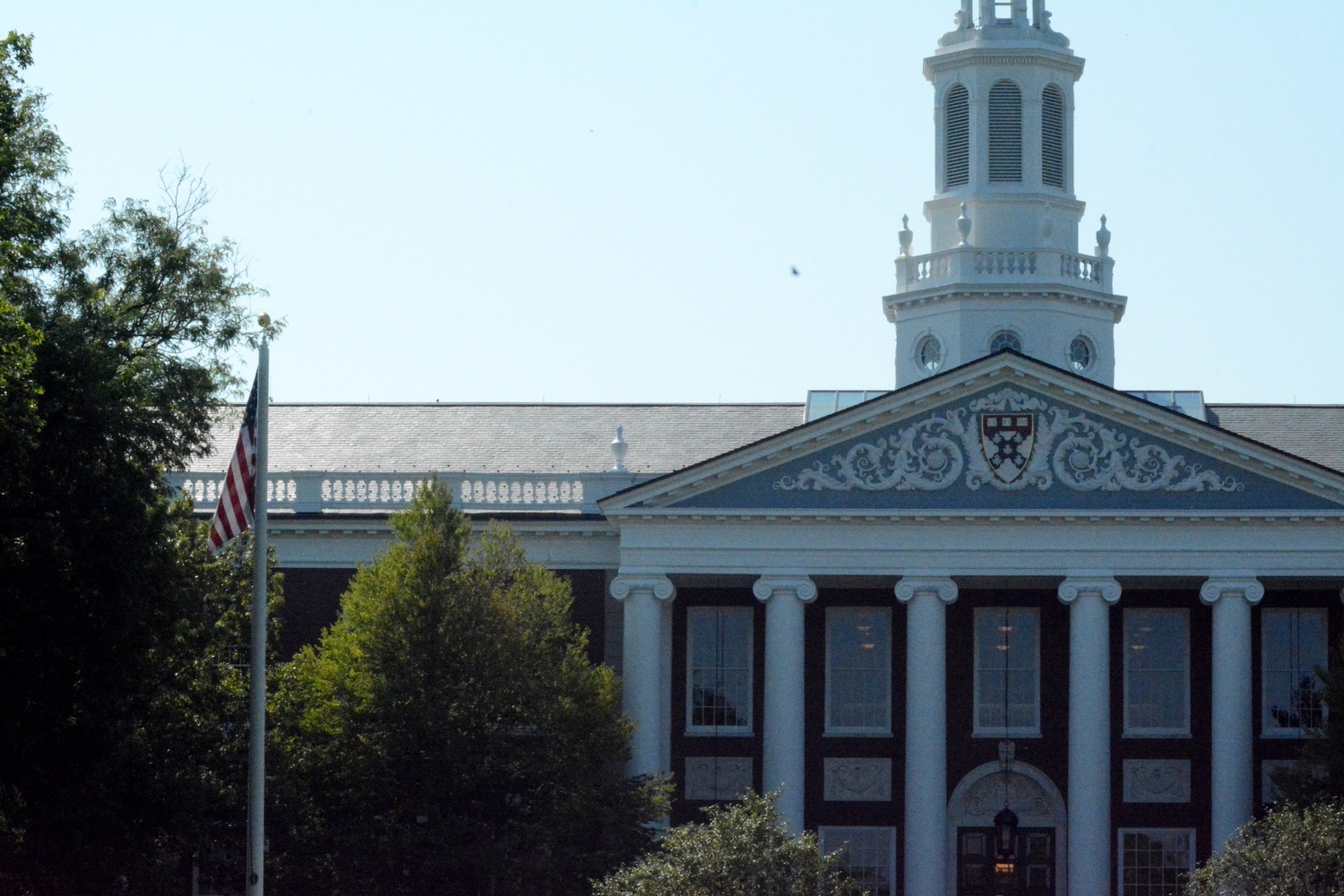
News
Summers Will Not Finish Semester of Teaching as Harvard Investigates Epstein Ties

News
Harvard College Students Report Favoring Divestment from Israel in HUA Survey

News
‘He Should Resign’: Harvard Undergrads Take Hard Line Against Summers Over Epstein Scandal

News
Harvard To Launch New Investigation Into Epstein’s Ties to Summers, Other University Affiliates

News
Harvard Students To Vote on Divestment From Israel in Inaugural HUA Election Survey
Judge Declines To Force Ex-HBS Prof. Gino To Pay Legal Fees for Bloggers Who Accused Her of Data Fraud

Updated July 12, 2025, at 12:52 p.m.
A federal judge rejected the data investigation blog Data Colada’s request to force former Harvard Business School professor Francesca Gino to pay legal expenses for her since-dismissed defamation suit against them.
Data Colada’s three bloggers moved in May to impose sanctions against Gino and her former legal counsel, from the firm Nesenoff & Miltenberg, describing her case as frivolous and punitive.
“Her claims attacked the Data Colada Defendants merely for engaging in scientific inquiry, and they cast a chilling effect in derogation of important First Amendment principles,” Jeffrey J. Pyle, an attorney representing Data Colada, wrote in May, saying she filed suit without “any reasonable hope of prevailing on merits.”
But Myong J. Joun, the judge overseeing the case, rebuffed the motion on Thursday. Though he wrote that her defamation case was “weak indeed,” he declined to take the unusual step of requiring her to pay Data Colada’s attorneys’ fees.
“While it is true that federal courts possess inherent power to sanction bad-faith conduct,” Joun wrote in his order, “it is also true that that power must be exercised with restraint and only where it is clear a party has acted in bad faith, vexatiously, or for oppressive reasons.”
Data Colada’s filings did not prove that Gino’s suit met that threshold, Joun wrote.
The site’s authors — professors Uri Simonsohn, Leif D. Nelson, and Joseph P. Simmons — were the first to accuse Gino of using fraudulent data in a research paper. They later published a series of posts alleging a more extensive trail of data manipulation in Gino’s work.
In response, Harvard Business School launched an investigation that found Gino had committed research misconduct and, separately, began a review of Gino’s tenure. The school ultimately took the extraordinary step of revoking Gino’s tenure and fired her this spring.
Gino sued the University in 2023 for defamation and gender discrimination, alleging that the tenure review used a newly created policy to target her. Her lawsuit also accused Data Colada of defamation, but Joun dismissed her claims against the bloggers in September 2024. He also tossed out her defamation claims against Harvard.
In their motion to impose sanctions, Data Colada originally requested that Gino and her former counsel respond to their Motion for Sanctions by May 23. Gino and Nesenoff & Miltenberg together asked for three extensions of time in filing their response. They submitted their opposition motions a month after the original due date with the consent of the Data Colada bloggers and Joun.
Gino’s lawyers claimed that they hold no legal basis, as her defamation suit was not filed in “bad faith” or for an “improper purpose.”
They maintained that Data Colada conspired against her, claiming that Gino “had (and has) good reason to question the motives of Data Colada in this case” even if the bloggers’ alleged malicious actions were not found by the court to be substantial enough for legal recourse.
Joun did not find Gino’s team’s arguments compelling. He wrote in his Friday order that their opposition failed to “meaningfully rebut the central facts” behind Data Colada’s defense — that the bloggers had published information that was substantially true and therefore not defamatory.
Nesenoff & Miltenberg represented Gino until Feb 15, when they withdrew from her case against the University and were replaced by lawyers from Hartley Michon Robb Hannon.
Jeffrey J. Pyle, who represents the Data Colada bloggers, wrote in a statement that Joun “essentially agreed with Data Colada on the facts.” Pyle argued that Joun’s decision not to compel Gino to pay attorney’s fees shows that Massachusetts should adopt stronger anti-SLAPP laws — protections designed to discourage meritless defamation lawsuits.
The Nesenoff & Miltenberg attorneys declined to comment, and Gino’s current legal team did not respond to a request for comment Friday night.
—Staff writer Graham W. Lee can be reached at graham.lee@thecrimson.com. Follow him on X @grahamwonlee.
Want to keep up with breaking news? Subscribe to our email newsletter.
